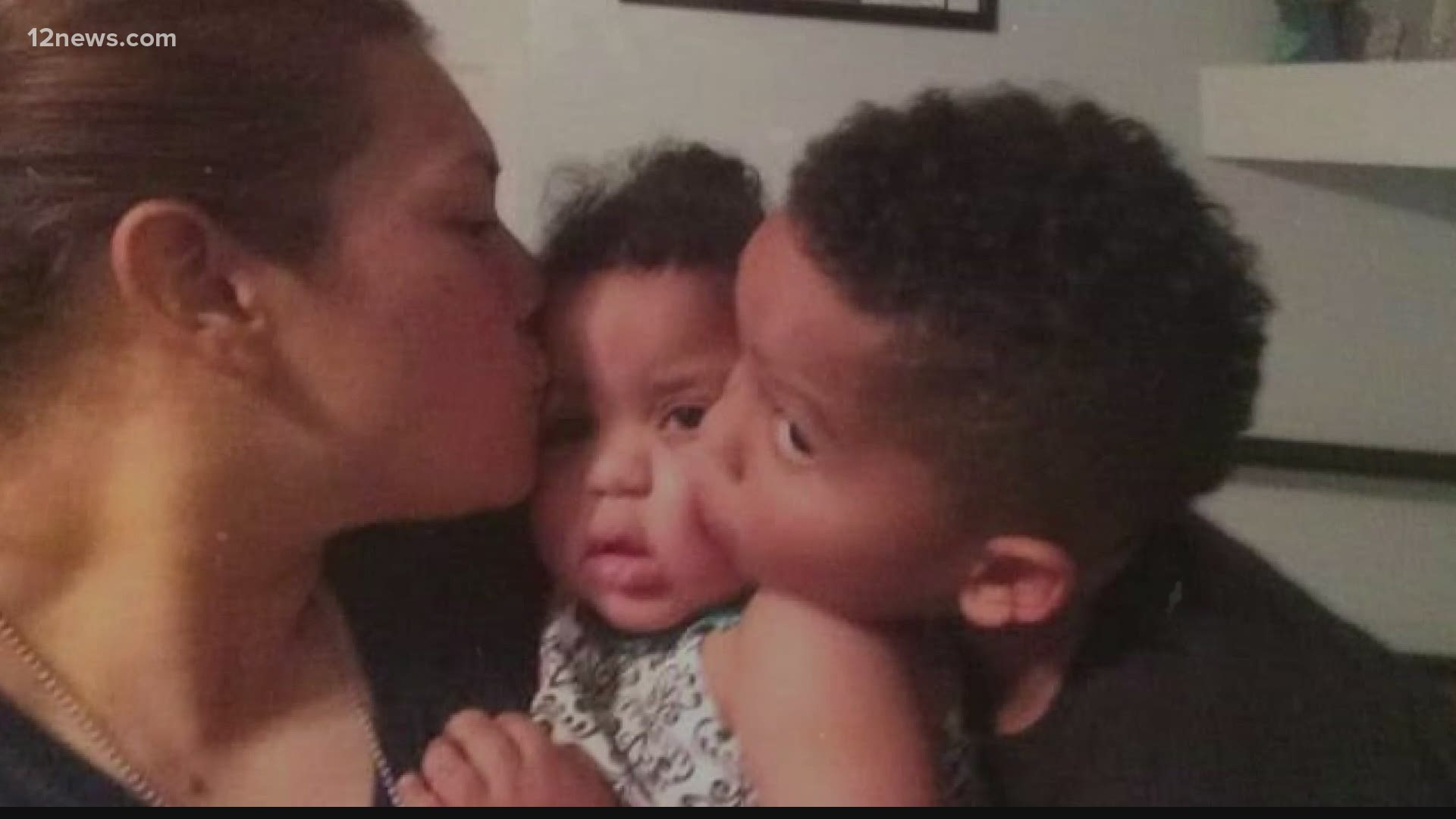ARIZONA, USA — Analicia Campas' dream of having a daughter came true at the worst moment of her life.
She already had Santiago, who at the time was 3 years old. He was “mama’s little boy” and Campas wanted him to have a “little princess” for a sister.
But at eight months pregnant, Campas found herself inside the state prison in Perryville.
“It’s hard, I wouldn’t wish anybody be pregnant while being locked up. I really don’t,” she said.
Campas said she was inside her cell when her water broke. She recalls telling her cellmate immediately who banged on their door in hopes of getting a guard’s attention. It worked.
When prison staff found her, they noticed the water was discolored and opted to take her to a hospital where Campas said baby Laila was born strong and healthy. Campas said she sighed a breath of relief — she worried that wouldn’t be the case.
“There [are] some things prenatal wise that wasn’t getting done [in prison],” Campas said. “Granted your food portions are a little bigger, but at the same time not enough vegetables for a healthy baby.”
Campas calls herself lucky to have given birth at a hospital. Other inmates have given birth in the prison’s yard.
“Sometimes you don’t even get a sonogram when you’re supposed to or they don’t even realize how far along you really are,” she said.
Lawsuit
In an ongoing lawsuit against the Arizona Department of Corrections, the American Civil Liberties Union of Arizona has raised concerns about inadequate medical care for people in prisons.
“In that lawsuit, it was revealed that people who are pregnant while in prison, had given birth alone in their cells and had also experienced miscarriage because of inadequate prenatal care,” said Analise Ortiz, spokesperson for ACLU of Arizona.
For years, the ACLU has been pushing for Senate Bill 1526, also known as the Dignity for Incarcerated Women Act, which increases protections for pregnant women while in prison.
“This will have positive health outcomes for both the mother and the child,” said Ortiz. “It’s really important that we are accommodating for the basic human rights of all people in prison.”
What does SB1526 do?
The measure makes changes to health and medical services offered to female inmates and allows a prisoner to receive a certificate when the prison successfully completes a training program to work in a specific field or trade. According to the bill's language:
It requires ADC to provide:
- Pregnant prisoners with food and dietary supplements that meet prenatal nutritional guidelines.
- Female inmates with feminine hygiene products upon request without being charged for them.
- Training on topics relating to the mental and physical health of pregnant prisoners for corrections staff.
ADC also must:
- Place a prisoner within 250 miles, when possible, of the prisoner’s address if the prisoner is a parent of a minor.
- Outline visitation requirements for a prisoner with minor children.
- Limit male correctional officers from conducting an inspection of a naked female prisoner whenever possible.
- Allow a newborn to remain with the mother for 72 hours following birth unless medical staff has a reasonable belief the mother poses a health or safety risk to the baby.
It prohibits ADC from:
- Using restraints on a pregnant prisoner or within 30 days following a child’s birth.
- An unlicensed health care professional from conducting a body cavity search on a pregnant prisoner unless the employee has a reasonable belief the prisoner is concealing contraband.
- Assigning a pregnant prisoner or a prisoner who has given birth within 30 days to a bed more than three feet high from the floor.
The measure also calls for a report to be submitted within 72 hours if a male officer conducts an inspection on a female prisoner who is undressed, if restraints are used on a pregnant inmate and if an unlicensed health care professional conducts a body cavity search for contraband.
SB1526 passed both the House and Senate and is now on Gov. Doug Ducey’s desk.
Hope for pregnant inmates
Now that baby Laila is five years old and is “a tall beautiful lady,” Campas is hopeful for future mothers in prison.
“[Babies] deserve so much more, to be born healthy instead of malnourished,” she said.
Campas said changes to the current health care system in prison are essential, for inmates who don’t have a support system on the outside and depend on the state to provide care for their unborn children.
“I understand we are locked up and we did this to ourselves, but at the same time we’re still human and we have feelings, we have rights still being an inmate,” she said.
Arizona Politics
Track all of our current updates with Arizona politics on our 12 News YouTube channel. Subscribe for updates on all of our new uploads.

